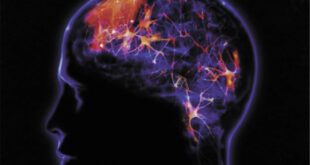Mery J. Lossada, MD – Chief Medical Officer, Hospice of Marion County
 We’ve all had a ‘senior moment.’ We forget something and then laugh about it with friends and family, but the thought runs through the back of our mind: was it really temporary forgetfulness or could it be something more ominous? How can we be sure?
We’ve all had a ‘senior moment.’ We forget something and then laugh about it with friends and family, but the thought runs through the back of our mind: was it really temporary forgetfulness or could it be something more ominous? How can we be sure?
Below are questions that can help you determine if medical attention may be required — Do you forget:
• where you left your keys?
• why you went into a room?
• a friend’s name?
• your own phone number or address?
The above list may be an indication of a memory issue and could be from memory decline. Is it something you’ve noticed about yourself or does a spouse or family member worry about the frequency of these episodes? If the latter, you may want to seek preventive intervention and further evaluation.
When is it a serious memory problem?
• You lose your car in the parking lot because you forgot the color, make and model.
• You have always had a remarkable memory and now you can’t remember anything.
• You get lost in places you should know well.
• You ask the same questions over and over.
• You are unable to follow directions.
• You are confused about time, people, or places.
Serious memory problems usually worsen over time with lapses becoming the norm. With mild cognitive impairment (MCI), patients are more likely to develop dementia. However, there are four different kinds of dementias: Alzheimer’s, Vascular, Frontotemporal, and Lewy Body. Depending on which one is diagnosed, the progression varies.
How the brain stores memories
Our brains are wonderful and fascinating “computers” that store memories in different categories: recent–what you ate for breakfast; short-term—the name of a person you met moments ago, and long-term–memories of your childhood.
Aging affects our memory and begins in our 20s. A few cells at a time are lost, with fewer chemicals produced that help the brain function. The older you are, the more these changes affect the memory. There are also changes in the way memories are stored, making it harder to recall information. It’s our short- and long-term memories that usually are not affected by aging. Other conditions that can affect memory include depression, side-effects of drugs, strokes, head injuries and alcoholism.
Memory tips:
• Make lists, use notes
• Stick to routines and use calendars
• Make associations–connect things in your mind
• Put frequently used items in the same place each time
• Learn new things, do brain games, learn a new language
• Avoid stress–exercise, meditation, and deep breathing
• Hydration–boosts speed of neuron firing; 8 glasses of water a day is ideal
Preventive measures include stopping smoking and drinking alcohol in moderation. Sleep is especially important, regenerative and restorative; get at least 7-8 hours of restful sleep, which also helps consolidate learning and new memories from the previous day’s experiences. Call 352-873-7400 for more information or visit www.hospiceofmarion.com.
 Central Florida Health and Wellness Magazine Health and Wellness Articles of the Villages
Central Florida Health and Wellness Magazine Health and Wellness Articles of the Villages



